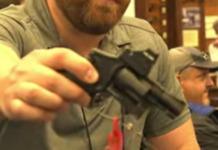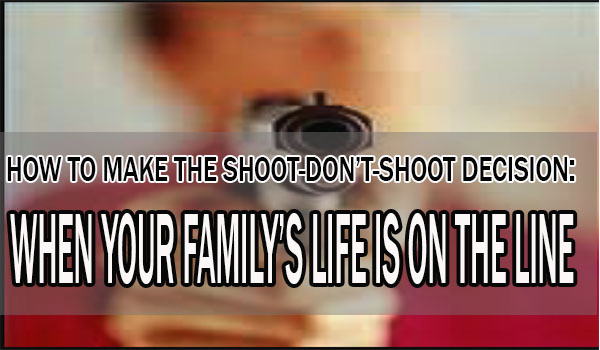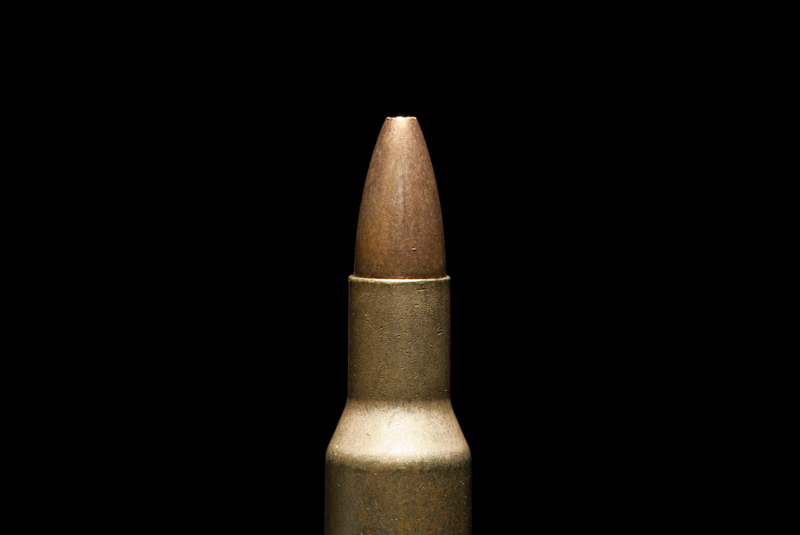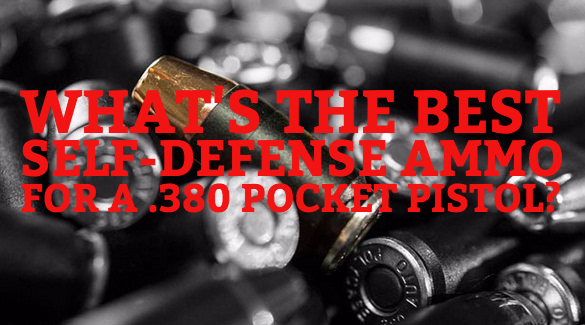It’s happened… you’ve heard that infamous bump in the night and gotten up to investigate.
You’ve got your pistol and your tactical light, and you’re going through the house, room by room, just as you’ve practiced, clearing it.
Suddenly, you’re face to face with the bad guys… they’re right there, across your sights. Do you shoot or not?
This could happen to any of us at any time. If we’re not ready for it, we’ll either shoot the wrong person or wait too long and they’ll shoot us. We have to be ready… mentally ready, or we’re not going to make the right decisions in that critical moment.
Before that moment happens, you have to decide if you’ll shoot.
I mean that …
It may seem like an odd thing to say, but many people don’t take the time to prepare themselves mentally. So, when the moment comes, they’re asking themselves if they can do it or not. That’s the wrong time to be asking that question; you’d better ask it beforehand.
But there’s more to this issue than just deciding if you will shoot; you need to decide if you should shoot as well.
While it would seem that you should be able to shoot anyone who breaks into your home, especially at night, you need to be careful. While the law does allow you to use deadly force to defend yourself and your family (and your home in some states), the courts have to agree with you… after the fact.
That’s the rub. You see, you’ve got to make a decision in a split second and the legal system has days or even weeks to analyze the situation, your actions, the actions of the invader and decide whether or not you should have taken that fatal shot.
It’s not fair at all, because you could end up in jail, just for doing the right thing and defending your family.
The key here is whether the invader is an imminent threat to you or your family. That term, imminent threat, means that you are convinced that if you don’t take preemptive action, they will do bodily harm to you or one of your loved ones.
So, they will have to be capable of causing harm, either because of being armed or because of demonstrated unarmed combat ability, have indicated intent to harm either by actions or words and be facing you or their intended victim.
If they turn to leave, they are no longer a threat.
That can be a lot to analyze in a split second. If a bad guy is standing over your child’s bed with a knife in an upraised arm, it’s obvious. Likewise if they’re facing you, looking over the sights of their own gun.
But not every situation is that clear cut. There are many situations where their intent may not be obvious and if you don’t know their intent, there’s no imminent threat.
On the flip side of the coin, there’s always the possibility that they are going to get you with their first shot. “He who doesn’t shoot first might not get a shot.”
So, you can’t wait too long …
I guess when it all comes down to it, it’s better to be alive and in jail for defending your family, than to be dead. Even worse, to be alive but have a family member who is dead, because you waited too long.
Do everything you can to be sure, before pulling the trigger. But then when it’s time to pull it, don’t hesitate.

![Case Study: Defensive Gun Use [Video] NSFW](/wp-content/uploads/2025/07/Depositphotos_282075792_S-218x150.jpg)








![What Level Holster Should You Be Using? [Video]](/wp-content/uploads/2024/04/Depositphotos_44548439_S-218x150.jpg)


![How Many Shots Will It Take? [Video]](/wp-content/uploads/2025/06/Depositphotos_2724272_S-218x150.jpg)



















![Optic Ready vs Milled slides? [Video]](/wp-content/uploads/2024/02/image-3-100x70.png)
![[Checklist] What Gear You Need To Take Pistol, Rifle & Shotgun Training Courses [Video]](/wp-content/uploads/2023/07/Depositphotos_275087632_L-100x70.jpg)
![What is in Carter’s 2023 EDC? [Video]](/wp-content/uploads/2023/07/Depositphotos_146856137_L-100x70.jpg)



This topic needs way more press and public education, I suppose. You are correct: the jury has hours to mull over what you had tenths of seconds. Societies all prohibit killing their own members, else the society breaks apart. Violence is horrific, usually.
Couple this with fantasy that violence could never happen to them and Rodney King’s plea to just get along and a juror can’t see why you could not have done something else other than shoot good old IcePick, new community icon and cause.
Many in community and who would be on a jury are seemingly ok with you getting killed, so long as the BG is going to get what he deserves, jail. If you kill or shoot someone you will need an expert to explain why you were not a martyr and were so selfish as to want to preserve your life. World we live in.
Any time an intruder has entered your home without permission he has made himself liable to arrest. Your only conversation should be to inform them they are “under arrest” and for them to lie face down with their hands clasp behind their back. Once their hands are secured with either handcuffs or plastic tie straps properly applied to keep their hands secured behind their backs, can you reasonably feel you are in control of the situation.
It is important to inform them they are “under arrest” because it changes the conditions under which the confrontation is occurring. Any person having been informed they are “under arrest” has a legal duty to submit to arrest. Should they fail to submit the arresting party may use “whatever force is necessary” to effect the arrest. Sometimes this necessarily includes deadly force.
Never use deadly force to try to scare, slow down, or attempt to wound a “suspect” you are arresting. (Remember, even if you witness a party committing a crime they remain a “suspect’ until they have been convicted in a criminal court).
Above all never display a weapon or threaten to use deadly force unless and until you are in fear of great bodily harm to yourself or another and are legally, morally and ethically justified in doing so. Your actions are going to be reviewed by authorities under the legal standard of how a “Reasonable Man” would have reacted in the same situation. If you are found to have behaved “reasonably” your use of deadly force will be found to have been justified. If not, you will likely be charged with crimes that could range from Threat with a Weapon to Murder and/or anything in between.
Before accepting the responsibility to respond with “deadly force” in hand your best bet is to complete a college level Criminal Justice course in “The Moral and Ethical Use of Deadly Force”, (preferably taught by a law enforcement officer) in a local educational institution. I suggest you take it in live attendance versus an online class so you can delve into theory and practice more deeply.
Well here is some food for thought. If someone you don’t know breaks into your house and the house is not on fire for what purpose could they possibly be there other than to steal from you and/or harm you? I would rather be on trial for shooting someone who broke into my home than have them be on trial for killing me or my family. If someone breaks into my home (I live in Colorado which has Make My Day laws) I am going to shoot first and ask questions later. I have a conceal and carry permit and I know the rules of engagement in Colorado and as long as they have both feet on the floor within the walls of my home, they are fair game. I just read recently that there are roughly 2.5 million instances a year where people have to defend themselves against assailants. I think its better that intruders are the statistic rather than the defenders.
I agree with you if someone brakes in my house they wont be walking out.
In Texas…he’s in my house, he’s shot…period. I know of no one who has done that and even got arrested, much less indicted or tried.
I am sorry I would not hesitate. If you are in my home in the middle of the night, uninvited and I am awakened by you I will react. When I was in the Navy and had to wake a guy for his watch you had better not touch him. He would have the right to kick your A_ _ if you did.
I am a 71 yr old female and if you break into my home you are a threat to me and will not be allowed to get near me. There is no way that I could fight back except with a gun.
Couple points I’d like to make. You state that when the intruder is turning around you should assume (as the jury/court may) that he/she were on the way out of the building. How do we know that at the time unless they are close to an outside door and heading toward it at the time of the shooting. How do we know that the perpetrator isn’t turning around to get better cover or concealment and planning to shoot you from there? I think the average person recognizes the burden of decisionmaking to break in should be in the mind of the intruder BEFORE they ever enter the house thinking that it might be a killing zone for anyone not welcomed. The problem is that they lib public wants to be nice and think that the intruder was a “nice boy who never did anything wrong” and had the misfortune to break and enter a home unwelcomed or unannounced…..until they happen to be the victim themselves and find themselves in the same position.
I have been there and believe me the decision time compresses seemingly exponentially. In my case the parolee with a stolen .38 fired at me first and missed. ,00 buckshot stopped fight pretty fast. I was lucky and have spent time and money on training to be better prepared should such an event occur again. MOLON LABE!!!
Comments are closed.